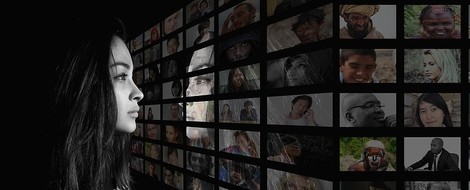Your podcast discovery platform
Curious minds select the most fascinating podcasts from around the world. Discover hand-piqd audio recommendations on your favorite topics.

piqer for: Global finds Globalization and politics
Nuala Lam is a bilingual freelance journalist with a focus on civil society, justice, and identity in China. She speaks, reads and writes Mandarin Chinese and forms her analysis of contemporary China through both English and Chinese language media. She has worked for NGOs and news media in Beijing and Shanghai and has also spent extended periods in the Chinese countryside, seeing the country's diversity and uneven development first-hand.
Her postgraduate research at the London School of Economics focussed on English-language coverage of China, investigating the translation of journalistic ethics between differing political contexts. She also holds a first class degree in Chinese and History from the School of Oriental and African Studies, University of London.
How To Ask "Where Are You From REALLY?" (Without Sounding Racist)
It can be tiring constantly explaining why you don’t like the question: “Where are you really from?” That’s why a recorded conversation like this one, which delves into the issues surrounding asking about people’s heritage, is such a great resource.
What Just Happened Podcast hosts David and Eugene Chang believe the question is more often than not well intentioned, and has the potential to lead to an interesting conversation about heritage and identity. But it has a “dark side” too. It is problematic if that well-meaning person subconsciously sees the individual sitting across from them as a foreigner in some way:
For instance, I can imagine someone running for office … for any type of seat in government in any area where the vast majority of people in the voting population are white ... Even if every single one of those people who have asked you "Where are you from really?" mean it with the best of intentions, suddenly, when you are trying to become their elected representative, you now have a hurdle that you have to overcome.
So, can you still ask about someone’s heritage without casting them as a perpetual foreigner?
David and Eugene say that because of the “dark side” of the way the question gets asked it could seem like the best thing to do is just not to ask people about their heritage at all. But they don’t think ignoring ethnicity is the solution:
I get worried about political correctness and creating things that you have to start worrying about in terms of having conversations … How do we increase the amount of healthy dialogue? One of the things that can hurt that is if you feel like you have to walk on eggshells around people.
The point is that the question “Where are you really from?” comes up much earlier in conversations for Asian Americans than it does for other groups. The question itself isn’t the problem, but the point at which it is often asked betrays an underlying otherness that is still projected onto people of colour in white-majority societies.
